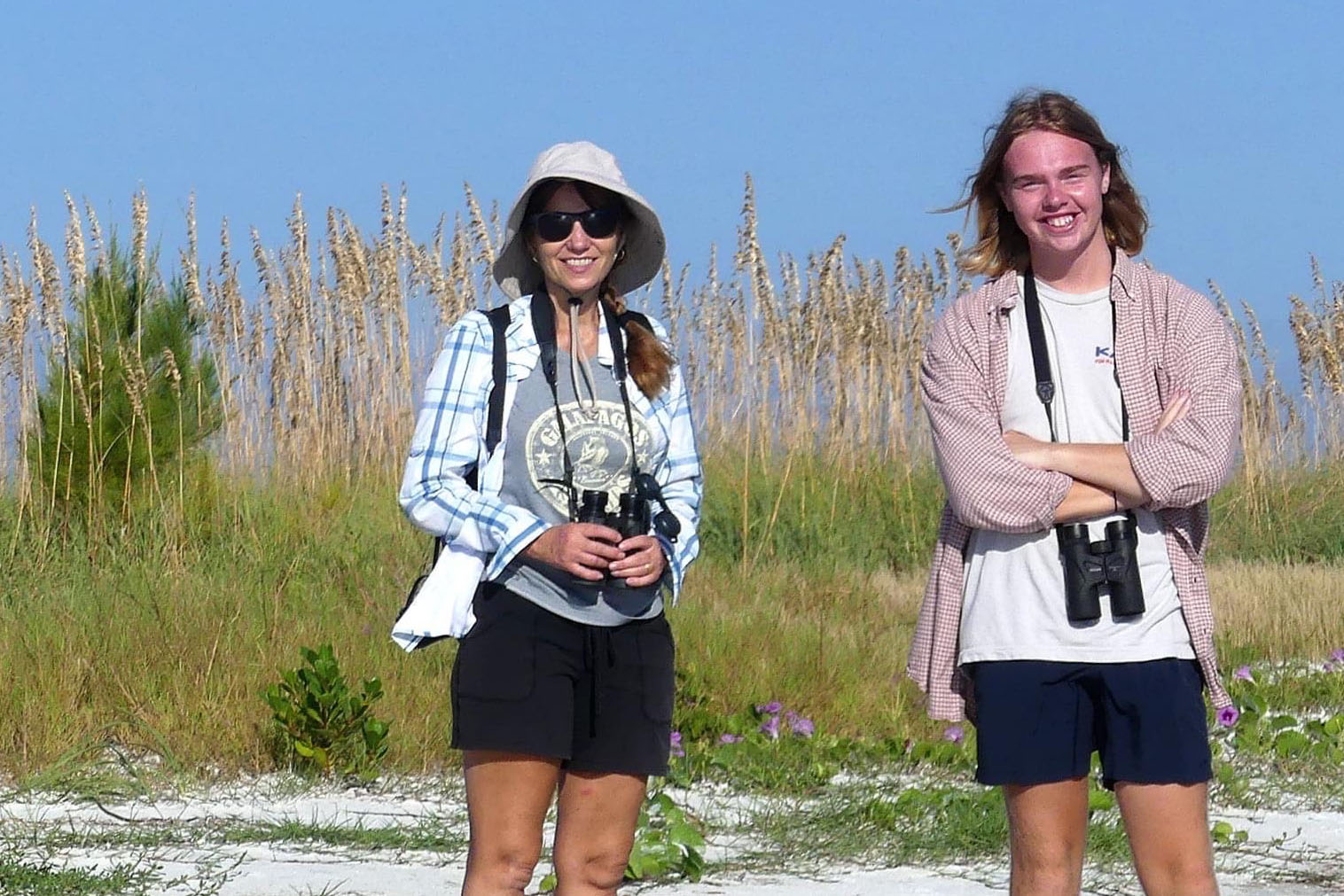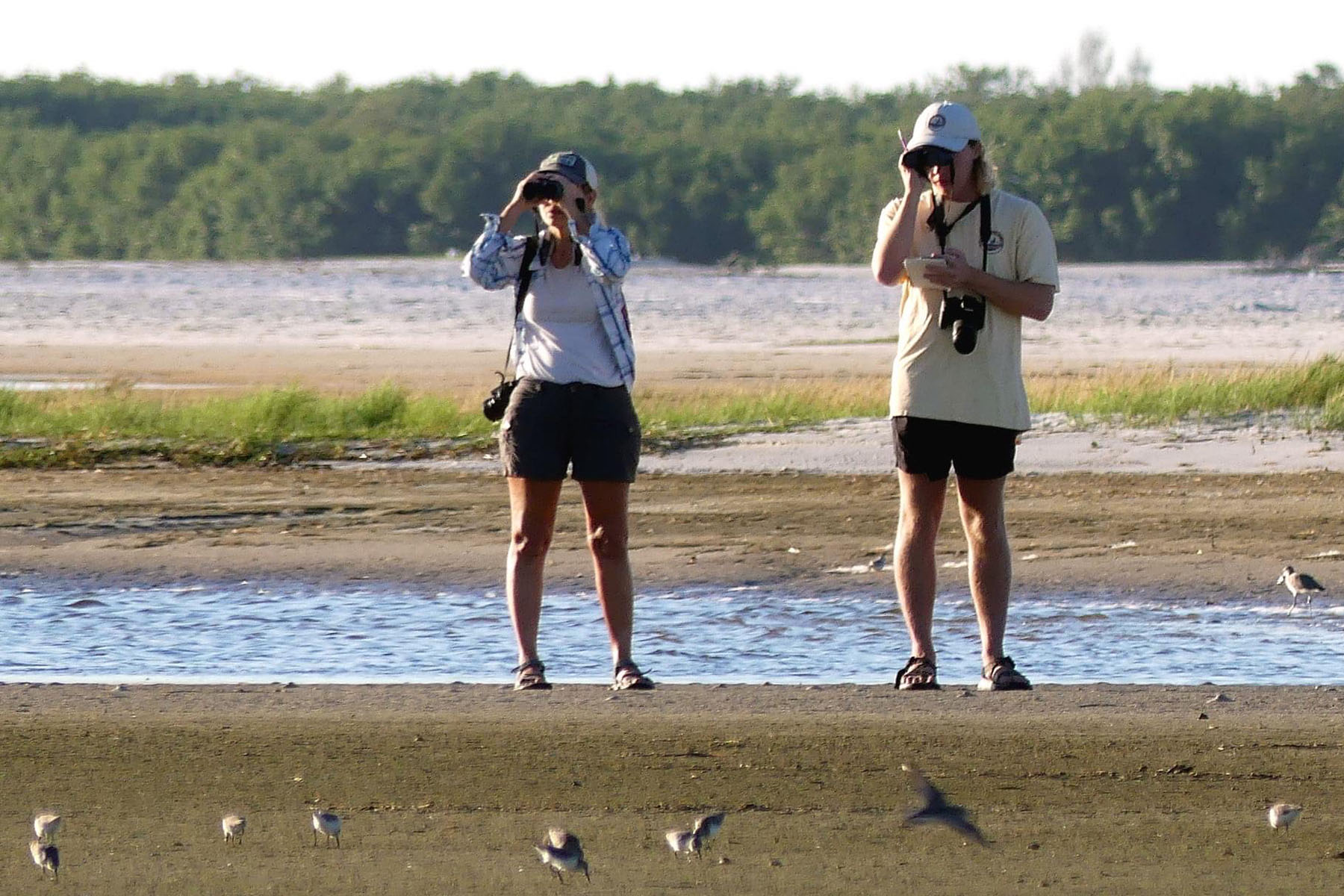Jayden Jech ’22 waded out to a tiny barrier island just off Pinellas County’s Fort De Soto Park 38 times over a six-month period during 2021–22.
Once ashore, he and Eckerd College Professor of Environmental Science and Biology Beth Forys, Ph.D., walked the tidal flats carrying binoculars and counting devices. The early morning visits to Outback Key were at times cold, wet and windy. But their work was important—studying three species of imperiled shorebirds: the piping plover, snowy plover and Wilson’s plover. Birds that can fit in your hand, only an estimated 400 snowy plovers and 900 Wilson’s plovers are left in Florida.
Jayden, who at the time was a senior biology and environmental studies student at the private liberal arts college, and his mentor, Forys, who also is the Richard R. Hallin Professor in Natural Sciences at Eckerd, counted the number of plovers on the island and examined how tide and wind affected their abundance and foraging behavior.
Then Jayden wrote his biology thesis on their findings. And together, he and Forys assembled their collective research into a paper titled “The Influence of Tide, Wind, and Habitat on the Abundance and Foraging Rate of Three Species of Imperiled Plovers in Southwest Florida, USA.” The paper was published recently by the peer-reviewed journal Animals.
The project had begun when Jayden and Forys were doing research on Outback Key and noticed the rare species of plovers at a high density. “So we decided to take a closer look,” Forys explains.
They found that the large number of plovers “was likely due to the mudflat habitat that provides ample food, a beach habitat that provides a relatively safe location to roost, and the location of the barrier island, which is surrounded by other good places to forage and rest,” the pair wrote.
“Due to Outback Key’s role in supporting piping, snowy, and Wilson’s plovers throughout the nonbreeding season, continued protection and management of the barrier island is crucial for the management of these species,” according to their article.
“This kind of research is something that if you were an undergraduate at a larger school, you wouldn’t be doing,” Forys adds. “I really enjoy doing this kind of work, and for an undergraduate like Jayden to get a peer-reviewed research paper published is very special.”
After showcasing his research background at Eckerd, Jayden, whose nickname is “Bird,” is currently back in his home state of Minnesota and working as a loon specialist with the state’s Department of Natural Resources. “We spent quite a bit of time at Outback Key documenting our research,” Jayden says. “But plovers are a very unique species of shorebird. All three species have shown declining populations, and there is little information about them.
“To have Dr. Forys’ support and guidance throughout this whole process has meant everything to me,” Jayden adds. “There were so many technical details she helped me with so we could get to the publication level.
“That was one of the reasons I came to Eckerd—the guidance, expertise and the support you get from faculty,” he says. “I’m so glad I could accomplish this, and hopefully, it will help with the conservation efforts involving the birds as well.”















